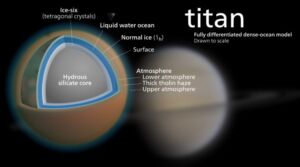
Contemporary history, a dynamic and transformative era, encapsulates the events and developments that have shaped our world in recent decades. From technological advancements to geopolitical shifts, this article takes you on an engaging journey through the key moments and trends that define the contemporary landscape. Let us dive into the heart of the modern age, uncovering the stories and examples that shed light on our present and hold the keys to the future.
1. The Digital Revolution: Empowering Connectivity
The turn of the 21st century witnessed the dawn of the Digital Revolution, an unprecedented transformation in communication and technology. Innovations like smartphones, social media, and cloud computing revolutionized how we connect, share information, and conduct business. With the world at our fingertips, the boundaries of time and space blurred, empowering global collaboration and driving the growth of the digital economy.
2. Globalization: The World Becomes One
The contemporary era saw a surge in globalization, as barriers to trade and communication fell. Companies expanded their operations internationally, leading to an interconnected global economy. While globalization brought economic growth and cultural exchange, it also brought challenges, such as income inequality and environmental concerns, which required collaborative solutions on a global scale.
3. The Rise of Social Movements: Voices for Change
Contemporary history has been marked by the emergence of impactful social movements. From the Arab Spring to the Black Lives Matter movement, people around the world have united to demand social justice, equality, and human rights. These movements have influenced policy changes, fostered awareness, and sparked important conversations about inclusivity and diversity.
4. Technological Disruptions: The Fourth Industrial Revolution
Advancements in artificial intelligence, robotics, and automation have driven the Fourth Industrial Revolution. While these technologies hold promise for efficiency and progress, they also raise questions about job displacement and ethical considerations. Balancing innovation with responsible use is crucial as we navigate this transformative era.
5. Climate Change and Sustainability: A Call for Action
The contemporary era has witnessed a growing awareness of the impact of human activities on the planet. Climate change and environmental degradation pose significant challenges, necessitating urgent actions to promote sustainability and preserve the Earth for future generations. Sustainable practices and renewable energy solutions have become critical components of global agendas.
6. Geopolitical Shifts: Power Dynamics in Flux
The geopolitical landscape has undergone significant shifts in the contemporary era. The rise of new economic powers, changing alliances, and regional conflicts have reshaped international relations. Navigating these complexities requires diplomacy and cooperation to address shared challenges such as terrorism, nuclear proliferation, and refugee crises.
7. Health and Pandemics: Confronting Global Threats
The COVID-19 pandemic, a defining event of contemporary history, revealed vulnerabilities in global health systems and highlighted the importance of preparedness and international collaboration. The pursuit of equitable access to healthcare and vaccination remains crucial for a resilient future.
Shaping the Path Forward
Contemporary history is a time of transformation, innovation, and interconnectedness. As we navigate the challenges and opportunities of this era, it is essential to draw upon the lessons of the past to shape a brighter future. Embracing technology responsibly, fostering global cooperation, addressing social issues, and safeguarding the planet will pave the way for a more inclusive and sustainable world.



